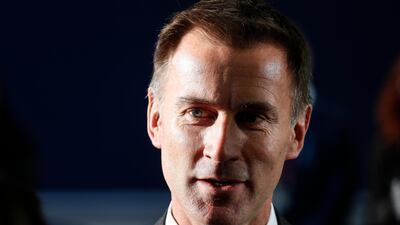British foreign minister Jeremy Hunt urged European counterparts to impose sanctions on Russia over its cyberwarfare activities in an attempt to deal a blow to the Kremlin’s worldwide web of interference.
Officials were also asked to join in a public naming and shaming of targets in a new EU sanctions regime on chemical weapons. The new measures were pushed by the UK in response to Russia’s March nerve agent attack on British soil. Mr Hunt has called for a united approach even in the teeth of the divisions that have emerged with the Brexit deadline looming.
Also on the table are other “global emerging threats” such as migration and terrorism that “will only be tackled if we maintain close cooperation.”
“This is a crucial week both for the UK and our European partners. The importance of achieving a Brexit deal that respects the autonomy of the EU and the sovereignty of the UK cannot be overstated,” said Mr Hunt.
“Delivering this is vital for our security too because economic relations sit at the heart of all our partnerships including the vital security alliances we have with our friends in Europe.”
Earlier this month the Dutch government accused Russia of attempting to hack the world chemical weapons watchdog (OPCW) in a “brazen” cyber-attack.
The UK has previously accused Russia of “reckless and indiscriminate cyber-attacks,” that include targeting the US Democratic Party’s operation.headquarters.
“These cyber-attacks serve no legitimate national security interest, instead impacting the ability of people around the world to go about their daily lives free from interference, and even their ability to enjoy sport,” Mr Hunt said ten days ago.
Reports state new EU sanctions on chemical weapons will first focus on Russian military intelligence officers Anatoliy Vladimirovich Chepiga and Alexander Mishkin, who allegedly were involved in the Novichok poisoning of Sergei and Yulia Skripal in Salisbury, UK.
Another resident of the town, who was not the intended target, later died after coming into contact with the nerve agent.
The sanctions will involve an EU-wide travel ban and/or asset freeze on those involved in the development and use of chemical weapons.
Russia has repeatedly denied the accusation and insists the two men were visiting Salisbury to see the city’s famed cathedral. Media reports that the two were in fact decorated Russian military officials and agents have been derided as propaganda spread by UK intelligence services.
_______________
Read more:
EU to crack down on online terrorism and cyber threats
German spooks: Iran's growing cyber capabilities poses danger
Russian national held in Norway for suspected spying
_______________
An EU diplomat supportive of the measures said it was crucial the pressure on Russia did not relent amid reported divisions on how to deal with Moscow’s nefarious activity in Europe.
“That would break the unity around the political message and the narrative. That would be considered a victory in Moscow,” the diplomat told the Financial Times.
The sanctions are, however, not expected to focus purely on Russia and could look at the Syrian regime’s use of chemical weapons.


